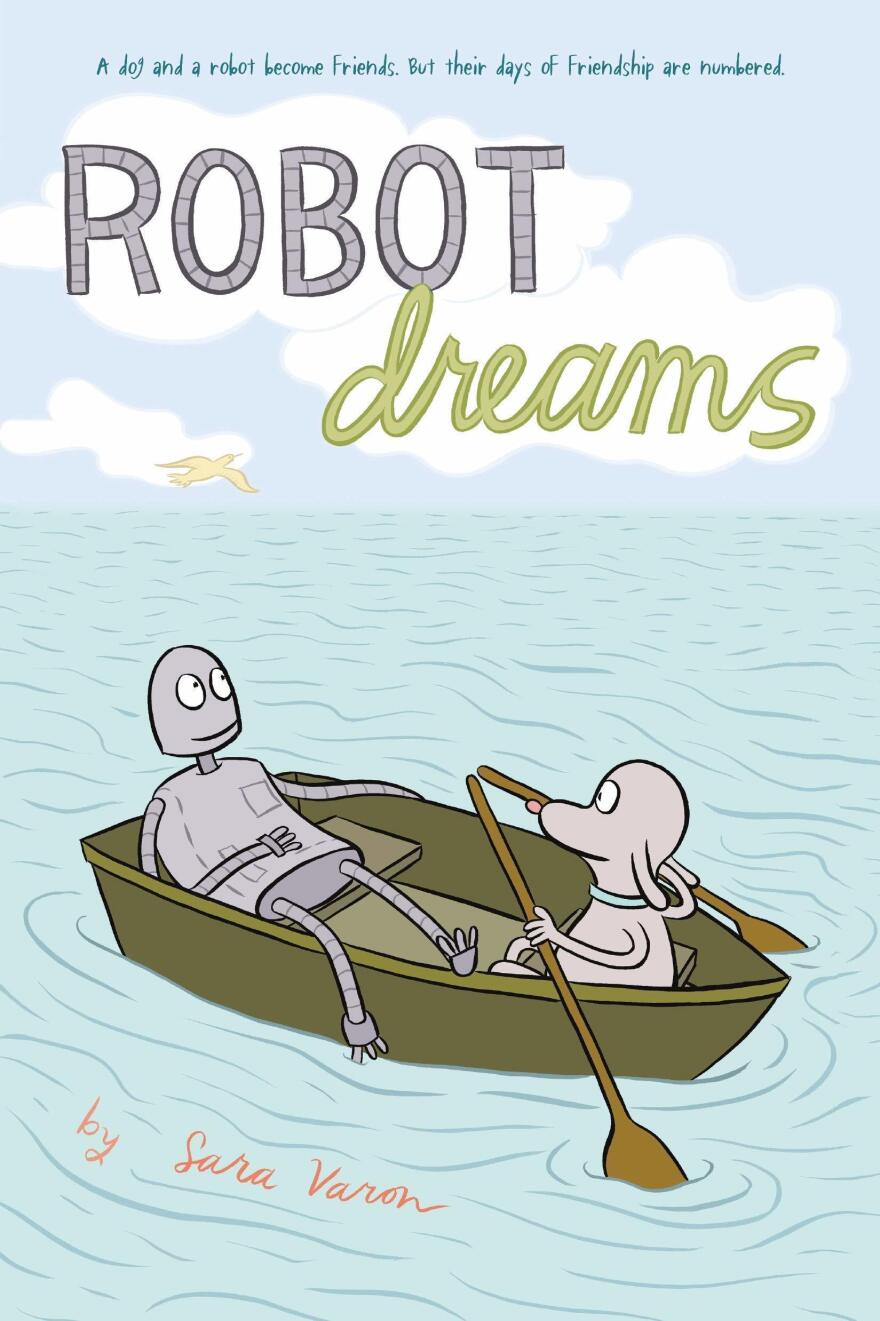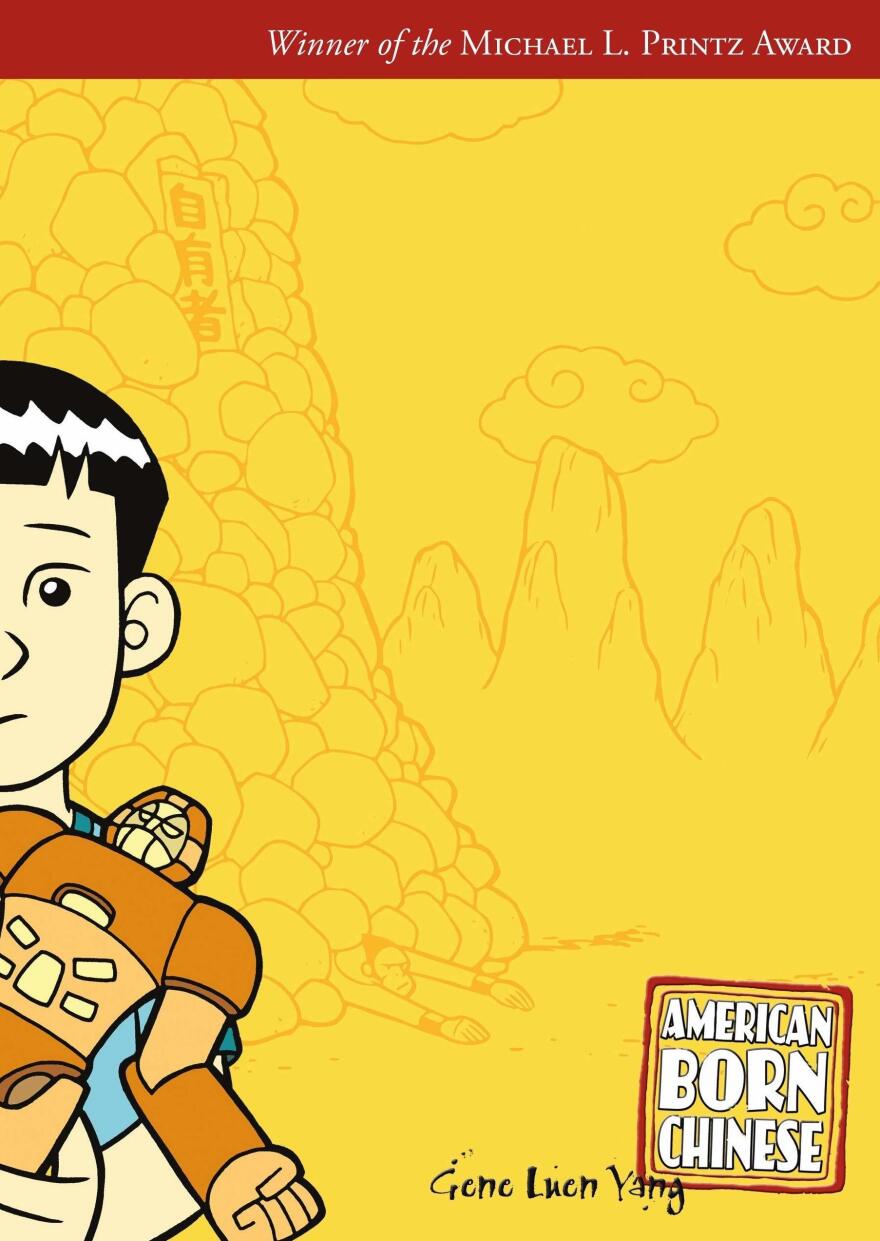Our Creators on the Cusp series brings you writers, artists, editors and publishers who are shaping the future of comics and graphic novels. We'll introduce you to the troublemakers and boundary-pushers who're taking comics in once-unimaginable directions.
At a time when comics and graphic novels were seldom released by mainstream publishers, Gina Gagliano worked tirelessly to put the genre on the radar.
She was on the original team behind Macmillan's trailblazing graphic novel imprint First Second in 2006. And then, two years ago, she helped found the Penguin-Random House imprint RH Graphic, focused on graphic novels for kids and Young Adult readers. She's pursued her passion outside the system, too, as host of the Graphic Novel TK podcast. She was named executive director of the Boston Book Festival in February. She spoke with me about working within the system, fighting censorship, and teaching kids (and adults) to love reading.
Back when I started thinking about this series, I was focused on people who actively make comics. My editor then, Petra Mayer, asked me specifically to include you in the series too — even though you're not the type of creator I had in mind — because she admired you so much. She saw you as the kind of publisher who's had a powerful influence on individual graphic novels, as well as someone who is contributing to the exploding popularity of the genre. As you may know, Petra passed away suddenly last fall. So I see this interview as a kind of memorial to her.
I'm sorry, I'm getting choked up, because Petra was one of my favorite people in the industry.
She was a lot like you, actually. She was devoted to making people aware of the types of books that she thought were special and overlooked. Did you feel a sense of kinship with her around this crusade?
She was this amazing champion. I respected how she was kind of "inside the system" at NPR — which has this monolithic reputation as an assessor of all things cultural — and she was taking all kinds of books that have been historically underappreciated and shedding a light on them. ... It's so important that we think about reading in all the different ways that people are reading: from kids' books, to comics, to romance and mystery. Commercial fiction as well as highbrow literary work.
It's interesting that you emphasize Petra's role as someone who was working inside a mainstream edifice to push for what she saw as important. You have been doing the same thing for years. People are still talking about your departure from Random House Graphic, the imprint you founded and headed, in December. Why did you leave there?

That change was really about the very thing that you said: Being in this large organization, being on the inside there and realizing that I wanted to work more directly with readers. At [the Boston Book Festival] I'm going to be building programs to get [books] into schools and ... bring them to as many of the people in this city ... as I can.
There's a huge problem with censorship right now. We're going to have a banned book speak out ... We have a Ukrainian reading room at our Lit Crawl program so that people can raise their awareness about what's happening in Ukraine. ... Those are things that I could make happen that are not on a timeline of, you know, "Let me acquire a book, and then the author will work on the book, and then the book will come out three years from now."
How are you able to combine your interest in comics, and especially kids' and Young Adult comics, with your goal of helping readers connect with current events?

I think there's always this question in kids' books: "Can kids' books truly address contemporary issues? Are kids' books just books for adults, but with a "less-high" vocabulary?" That's not what kids' books are at all. ... What they are meant to be, in my personal opinion, is books that reach kids where they are. Books that are as sophisticated and complex and enjoyable as adult books, but targeted at someone who may be just learning about something like climate change, someone who's just learning about censorship. ... [It's] a completely different approach. It sometimes takes much, much more work to figure out.
You mentioned the increase in censorship earlier. It seems like one of the things that's happening in the discourse these days is that a big chunk of people has decided that they don't have any hope of getting their right-wing views heard by the mainstream media, so they've just checked out. How do you think we should be addressing them?
There ... just needs to be so much change in the place that our culture gives to schools and libraries — and the funding that our culture gives to schools and libraries — so that those spaces can have the time and the resources and the staff to make community connections and be the centers of those discussions for all of the different towns and communities across America. Part of that is people trying out new books, people reading books from viewpoints that are not their own. [People should be] reading books, as Rudine Sims Bishop says, as mirrors and also as windows to other experiences. ... Before that reading can happen, there just need to be those conversations and those relationships.
What are the graphic novels you've worked on over the course of your publishing career that you've been most excited about — the ones you will always remember?

Gene Luen Yang's American Born Chinese is one of the first graphic novels I worked on after starting at First Second doing marketing and publicity. It was the start of getting to support Gene on many more books in the next decade. Robot Dreams by Sara Varon will always remain one of my favorite books ever. I love so much how she captures the sweet and bittersweet nature of friendship. And [there's] the first book I acquired at Random House Graphic, Trung Le Nguyen's The Magic Fish, which I co-edited with Whitney Leopard. Trung is an amazing storyteller, and stories about queer identity and family always have a place in my heart — even when they're not accompanied by fairy tales, one of my other favorite types of books.
I looked at the Random House Graphic homepage, and it said it had "a mission to put a graphic novel on the bookshelf of every child and YA reader." Is that still your mission?
It's not just that everyone should be reading comics (which they should), it's also that America has a lot of stigma [around] reading. Reading, for many people, is not fun — it's not entertainment. It's kind of thought of in the same frame as you think about book reports [rather than a way] to relax after work. ... I really want people's attitude towards reading ... to be like, "This is an exciting and fun thing that I can't wait to do."
The number of blockbuster book franchises that we've seen in the U.S., especially for kids, over the past 20 years ... things like John Green and The Fault in Our Stars, things like Suzanne Collins and The Hunger Games ... really shows that books can permeate our cultural landscape. ... This vision that I have — of everyone in America just being excited about and invested in reading — I can see it on the horizon.
Copyright 2022 NPR. To see more, visit https://www.npr.org.


